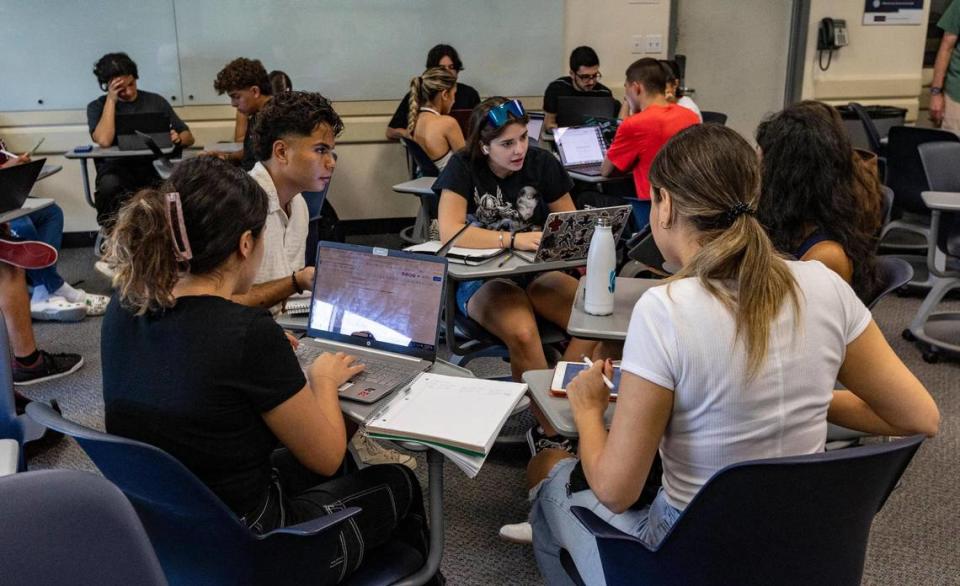Did you fail calculus? How a new math method developed at FIU has turned things around
Charity Watson’s Calculus I class looks different than most.
Instead of lecturing from the front of the room, the mathematics professor usually stays to the side, solving problems from her desk. She uses a smart board, so whatever she writes on her computer shows on a projector for everyone to see.
But before she writes, she consults with her about 35 students.
“So, what is that limit going to give me there?” she prompted about a specific equation Thursday, during the fourth session of the fall semester.
“20,” someone in the back responded.
“Right, 5x4 is 20,” she said.
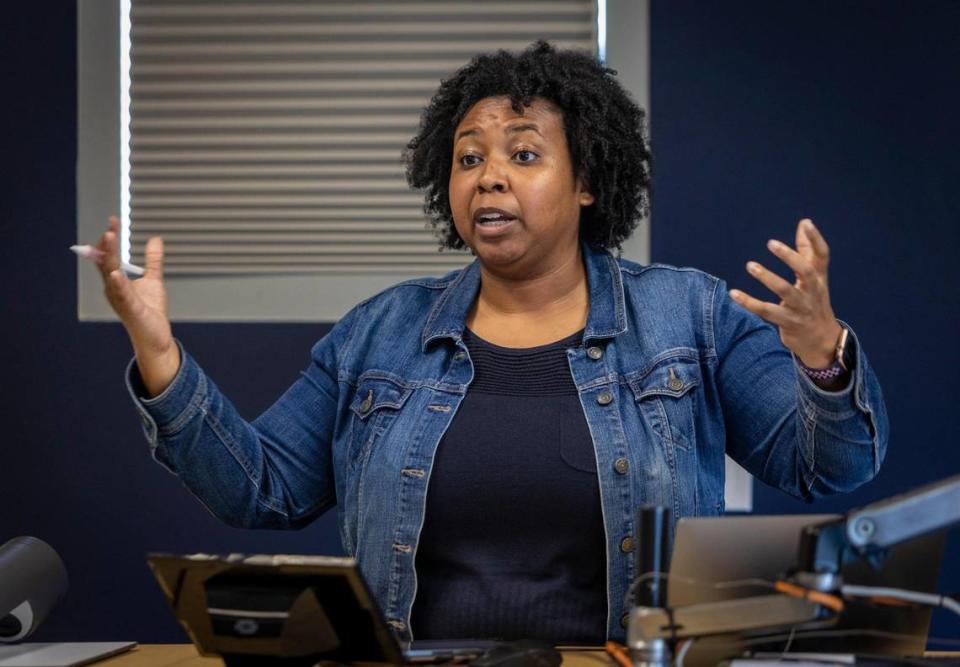
Watson, like most of her math colleagues at Florida International University, traded in her traditional lectures a few years ago for a new form of pedagogy called “Modeling Practices of Calculus” (MPC) that involves more student engagement.
As a result, the pass rates for introductory calculus — a foundational course required for almost every science, technology, engineering or mathematics (STEM) major — skyrocketed from an average of about 55% in 2018 to an average of about 70% this year.
Michael Heithaus, the dean of the FIU College of Arts, Sciences and Education, expects that number to keep rising.
“It’s the same rigorous math. We’re just making it that much more accessible and easy to learn,” Heithaus said. “It’s super exciting because for decades success in math has really been a problem nationwide — not just at FIU. And this is a solution to that here and at other institutions.”
How FIU developed the new math teaching method
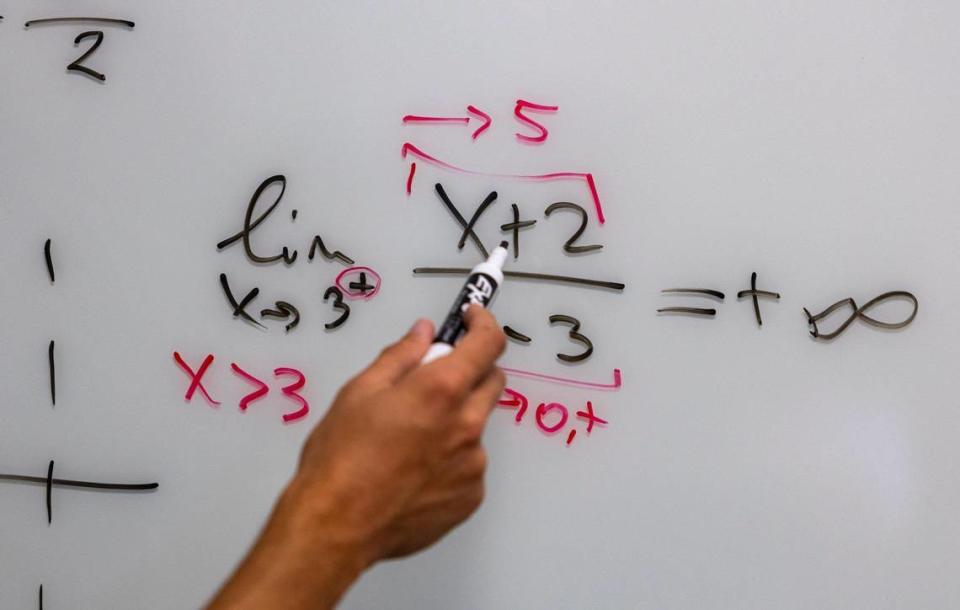
FIU professors started teaching calculus differently in 2018 because Laird Kramer, a physics professor who studies educational techniques, led a research experiment. He had already transformed some physics classes at FIU and he said he wanted to try it for advanced math next.
“To understand things, you need to practice them and actually do them, not just watch others do them. You’re not going to become a pro tennis player if you just watch others do it. You have to grab the racket and play, build your confidence and intentionally practice,” he said.
“So this is all about getting students to practice as soon as possible, not 10 minutes before the exam. We want them to do it in a setting that allows them to ask questions easily, not in their dorm room alone with very few people who can help.”
With funding from the National Science Foundation, Kramer and his team sampled 811 students during fall 2018, spring 2019 and fall 2019. They randomly assigned 394 to conventional lecturing and 417 to the MPC treatment. The seven faculty members who tried the new methods participated in a two-day workshop on MPC materials to prepare.
After the three-semester trial, Kramer and his fellow researchers saw students who learned more collaboratively performed better in tests than their peers. Their research paper about it published on the “Science” journal online on Thursday.
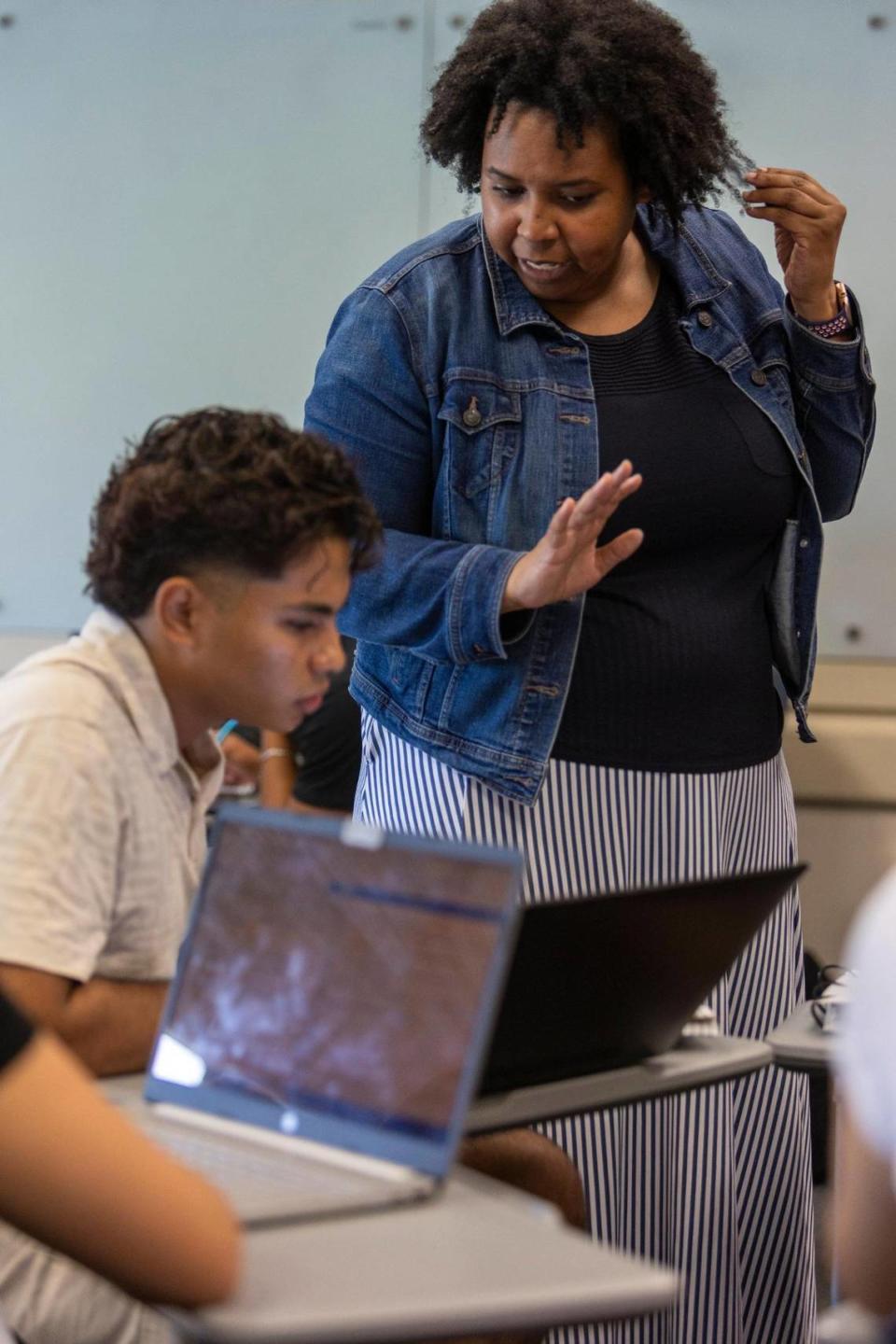
In spring 2020, all math professors at FIU adopted some or all aspects of MPC, Kramer said. In fall 2018, the pass rate for Calculus I averaged 55% over the prior six semesters. Currently, that stands at about 70%.
Although he expected the results, Kramer said he still felt “super happy” about them. Beyond more students getting higher grades, the change means more people will go into STEM careers like engineering, medicine and meteorology, and perhaps change the world.
“It’s awesome because more students are able to achieve their dreams,” he said. “It’s also awesome because it’s bringing in more people with different life experiences who wouldn’t have been in those fields before.”
Transforming calculus from a filter to a pump in STEM
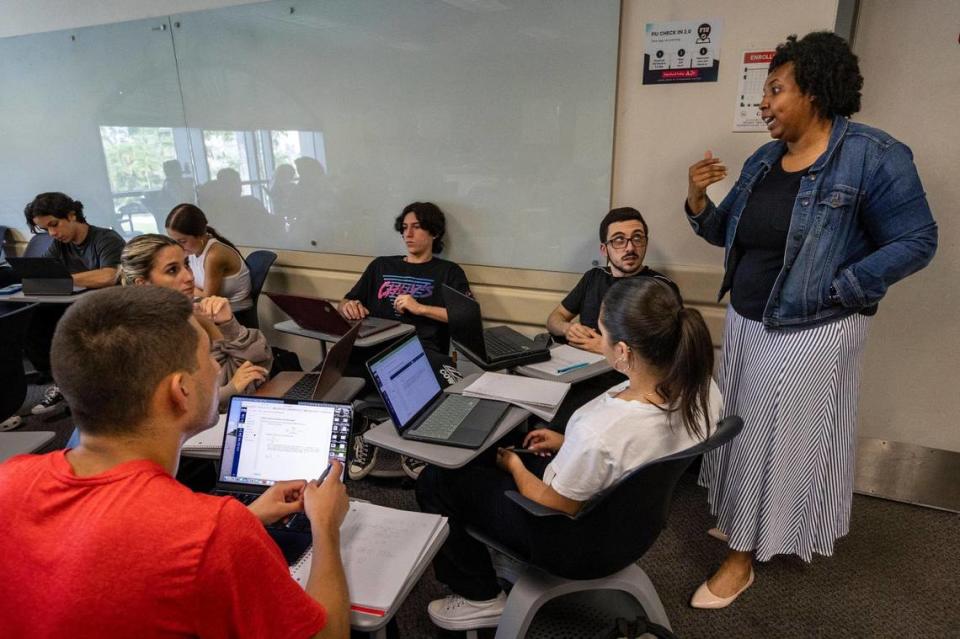
Watson, who has been teaching for 10 years and incorporated MPC in 2018, said she likes it because it allows her to address student concerns. Because calculus gets a bad reputation, many students show up feeling anxious. By making the environment conversational and lowering the stakes, she allows them to change that mindset.
“Before I would look into the crowd and see them totally spaced out or they’d be doing other homework or something else,” she said. “It’s much better now.”
She started her class Thursday on FIU’s main campus in West Miami-Dade by reviewing problems from the last class on the smart board, volleying questions and answers back and forth with students. Then she briefly introduced a new topic, infinite limits, and asked students to form small groups and complete a worksheet.
As they worked, Watson and two learning assistants — FIU students who already passed the class and get paid for helping others — walked around and answered questions. Kramer said the assistants help because students often find them more relatable than faculty and feel more comfortable going to them.
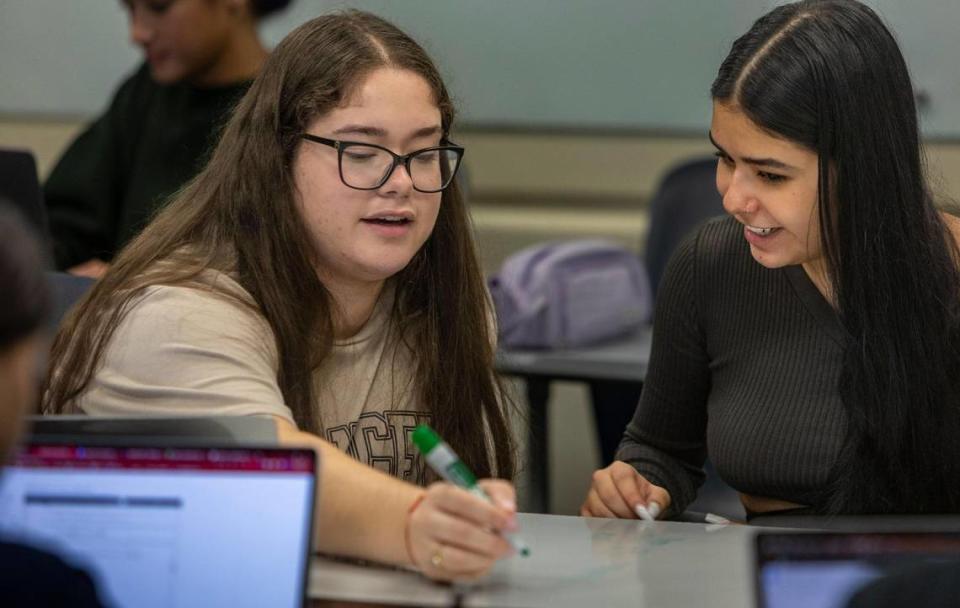
Dilayla Serafin, 18, huddled close to Johanny Saltos, an 18-year-old freshman majoring in computer science, and looked at a problem Thursday. Serafin, a junior credit-wise who is majoring in biology and wants to become a physician assistant, said she likes learning the new way.
“If it’s just a professor talking and talking, my head usually goes to another place,” she said. “So I like this. I stay engaged. And instead of just having one person who knows more, we get three.”
Although she had experienced that format before in other classes like English, she said it surprised her to see it in math.
“It caught me off guard,” she said. “But I’m doing really good.”
